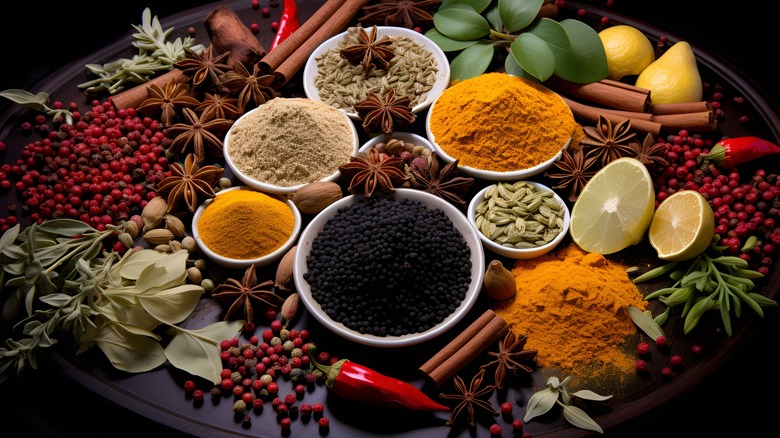The Bold Aromatics In Marinade Should Be Grated For More Penetrating Flavor
A well-prepared dish should start tantalizing your taste buds as soon as it leaves the kitchen. Think of dishes like garlic-ginger beef stew – you can smell its wonderful herbs and savory aroma, and you can't wait to dig in even before it's on the table. If the food doesn't have a great fragrance, it'll still feel a bit lacking or even off-putting regardless of whether or not it's perfectly cooked.
But as valuable as they are, it can be pretty tricky to extract scents and flavors from bold aromatics like shallots, chili peppers, and onions. And bringing out the best in these robust ingredients becomes especially important when you're making a marinade. After all, the whole point of making a marinade is to add extra taste and aroma to the final dish. Fortunately, there's a simple trick to make the aromatics in the marinade work overtime: grate them!
When you grate aromatics like ginger and fresh garlic and add them to your marinade, it makes their flavors even stronger because it ruptures more of their cell walls, giving your concoction a richer taste. What's more, the small bits created by grating have a bigger surface area, which allows them to interact and release their aromatic compounds deep into your marinade and, later, into your food. As a bonus, aromatics usually stay in the marinade instead of being fished out like they often are in full dishes. So, when you grate them, they blend right into your dish's texture. No need to deal with big chunks of shallot or ginger floating around in your food anymore!
Can marinade penetrate the food?
Sharp-eyed readers might have noticed that we used the term "penetrating flavor" instead of "penetrating ability (into the meat)." To clarify, grating the aromatics will allow you to extract more flavors and scents out of the individual ingredients. However, this process won't make the marinade penetrate deep into the meat or food.
Typical marinades don't contain compounds that can sink more than an inch into the meat. The marinade, being a liquid, can seep into small cracks on the meat's surface, but that's about as deep as it can go. The marinade is a surface treatment for the most part, so that's where all of its flavors and aromas reside.
But this isn't necessarily a bad thing. When used correctly, marinades excel at jazzing up the taste and scent of a dish. And, if you're cooking something like seared ahi tuna where the color of the main ingredients matters, you certainly don't want the soy sauce marinade to dive deep and turn that lovely pinkish meat into an inky black color, right?

